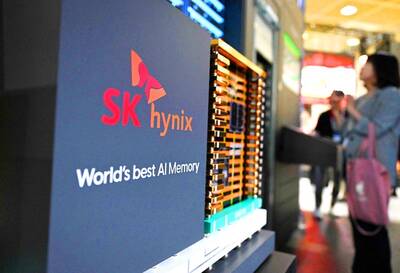Mildex Optical Inc (熒茂光學) and its offshore subsidiary, Mildex Asia Co, yesterday secured a three-year syndicated loan of NT$600 million (US$18.2 million) and US$18 million respectively from seven domestic banks, the loan’s lead bank Chang Hwa Bank (彰化銀行) said in a press statement.
The banks oversubscribed the loans by 55 percent on Mildex Optical’s latest breakthrough in the mass production of touch panels, even though the companies had just requested NT$500 million and US$15 million respectively, the statement said.
Banks taking part in the loan package include Taiwan Cooperative Bank (合作金庫銀行), Taiwan Business Bank (台灣中小企銀) and Land Bank of Taiwan (土地銀行).
The banks are bullish about Mildex Optical’s prospects in anticipation of business picking up after the launch of Microsoft’s Windows 7 later this year, the statement said.
Citing a research report, Chang Hwa said the output value of touch panels is expected to reach NT$100 billion this year. Daiwa Securities SMBC-Cathay Co (大和國泰) said last month that the penetration of touch panels used in notebooks would rise significantly over the next two years.
The penetration of touch screen notebooks was expected to triple from 4 percent this year to 12 percent next year and 20 percent in 2011, Daiwa analyst Emma Tang (唐婉倩) said in a report on June 2.
Mildex Optical, founded in 2005, had focused previously on the production of touch panels for military and industrial uses. It moved into the consumer touch panel market last year, the statement said.

Intel Corp chief executive officer Lip-Bu Tan (陳立武) is expected to meet with Taiwanese suppliers next month in conjunction with the opening of the Computex Taipei trade show, supply chain sources said on Monday. The visit, the first for Tan to Taiwan since assuming his new post last month, would be aimed at enhancing Intel’s ties with suppliers in Taiwan as he attempts to help turn around the struggling US chipmaker, the sources said. Tan is to hold a banquet to celebrate Intel’s 40-year presence in Taiwan before Computex opens on May 20 and invite dozens of Taiwanese suppliers to exchange views

Application-specific integrated circuit designer Faraday Technology Corp (智原) yesterday said that although revenue this quarter would decline 30 percent from last quarter, it retained its full-year forecast of revenue growth of 100 percent. The company attributed the quarterly drop to a slowdown in customers’ production of chips using Faraday’s advanced packaging technology. The company is still confident about its revenue growth this year, given its strong “design-win” — or the projects it won to help customers design their chips, Faraday president Steve Wang (王國雍) told an online earnings conference. “The design-win this year is better than we expected. We believe we will win

Power supply and electronic components maker Delta Electronics Inc (台達電) yesterday said it plans to ship its new 1 megawatt charging systems for electric trucks and buses in the first half of next year at the earliest. The new charging piles, which deliver up to 1 megawatt of charging power, are designed for heavy-duty electric vehicles, and support a maximum current of 1,500 amperes and output of 1,250 volts, Delta said in a news release. “If everything goes smoothly, we could begin shipping those new charging systems as early as in the first half of next year,” a company official said. The new

SK Hynix Inc warned of increased volatility in the second half of this year despite resilient demand for artificial intelligence (AI) memory chips from big tech providers, reflecting the uncertainty surrounding US tariffs. The company reported a better-than-projected 158 percent jump in March-quarter operating income, propelled in part by stockpiling ahead of US President Donald Trump’s tariffs. SK Hynix stuck with a forecast for a doubling in demand for the high-bandwidth memory (HBM) essential to Nvidia Corp’s AI accelerators, which in turn drive giant data centers built by the likes of Microsoft Corp and Amazon.com Inc. That SK Hynix is maintaining its